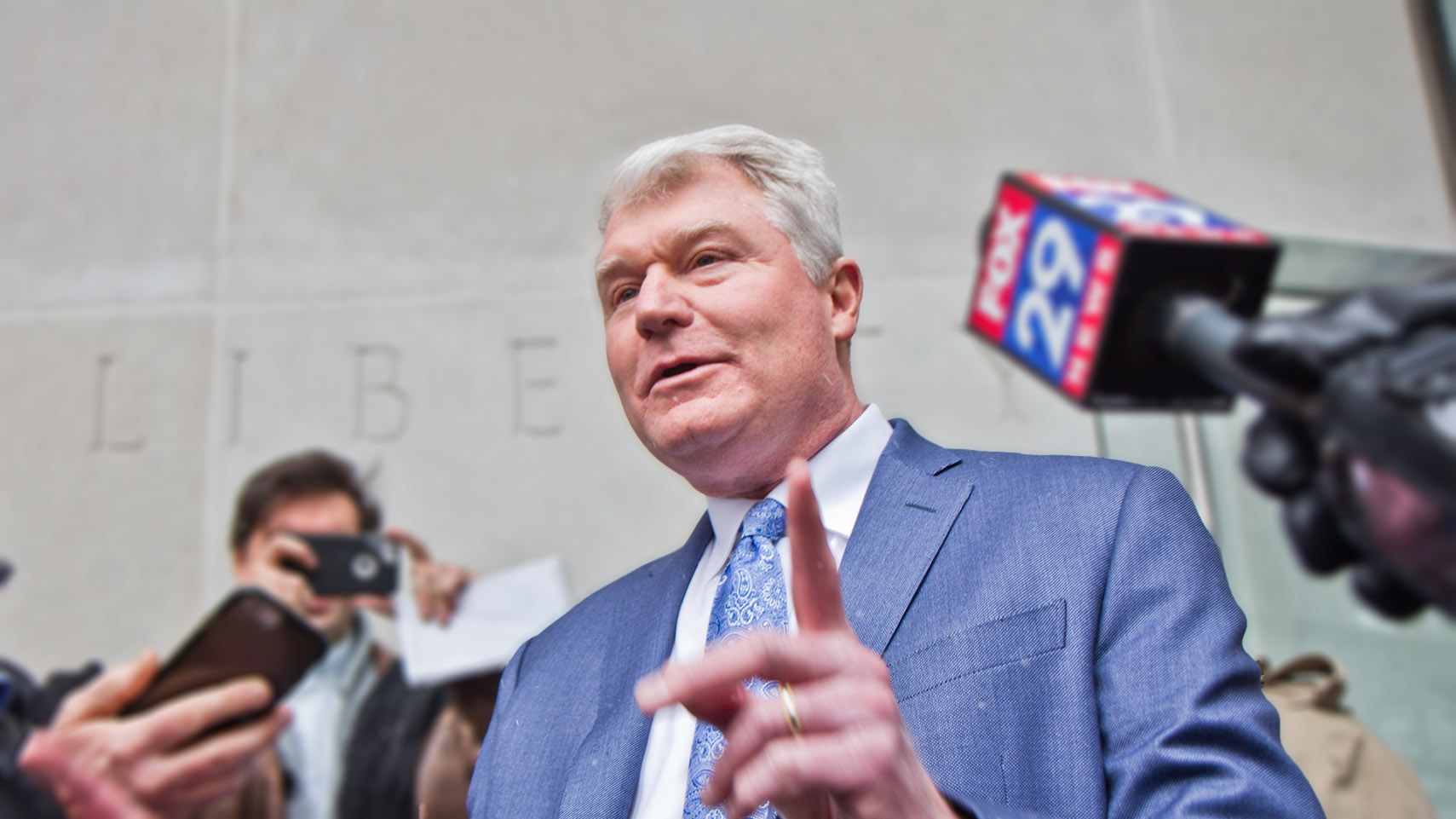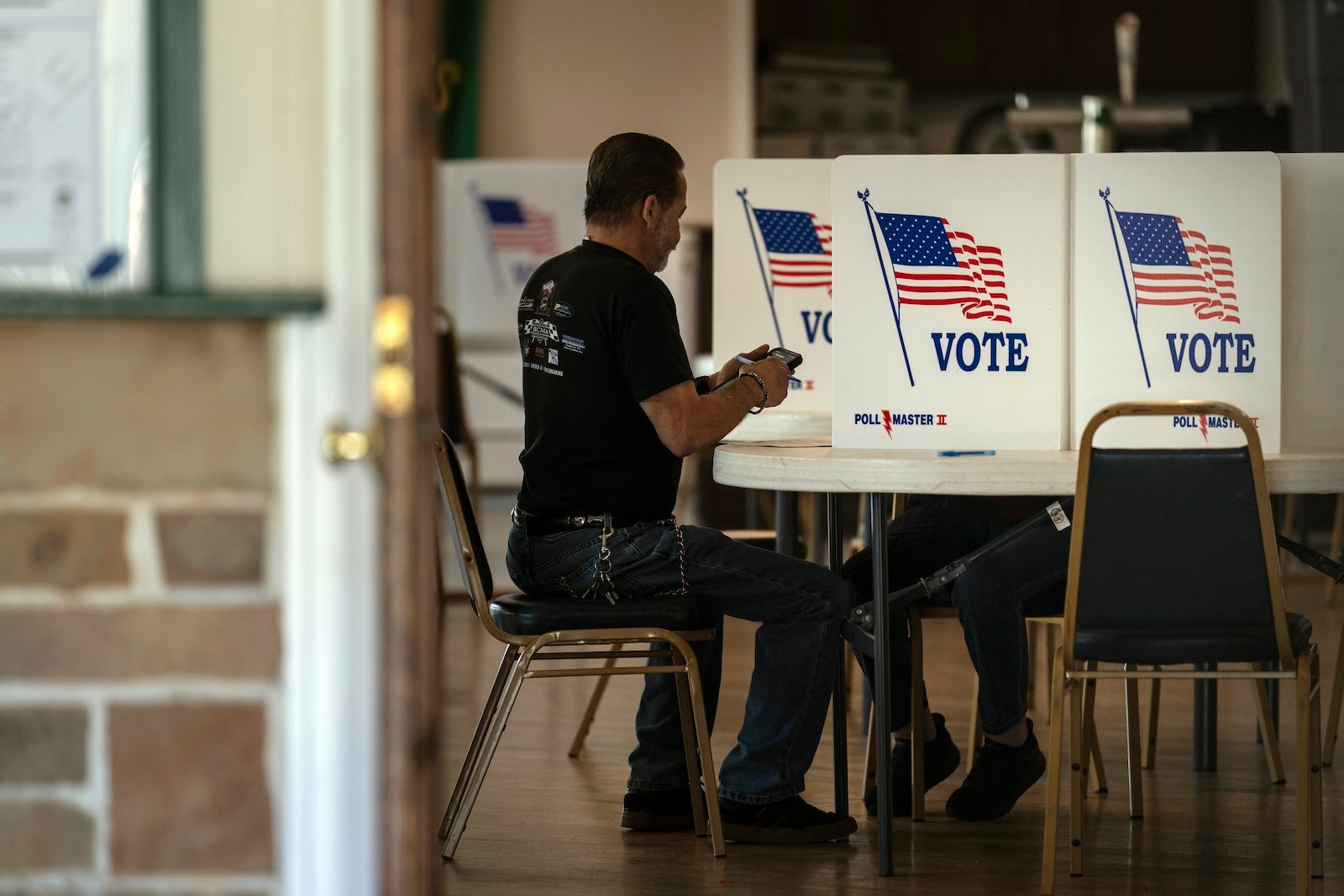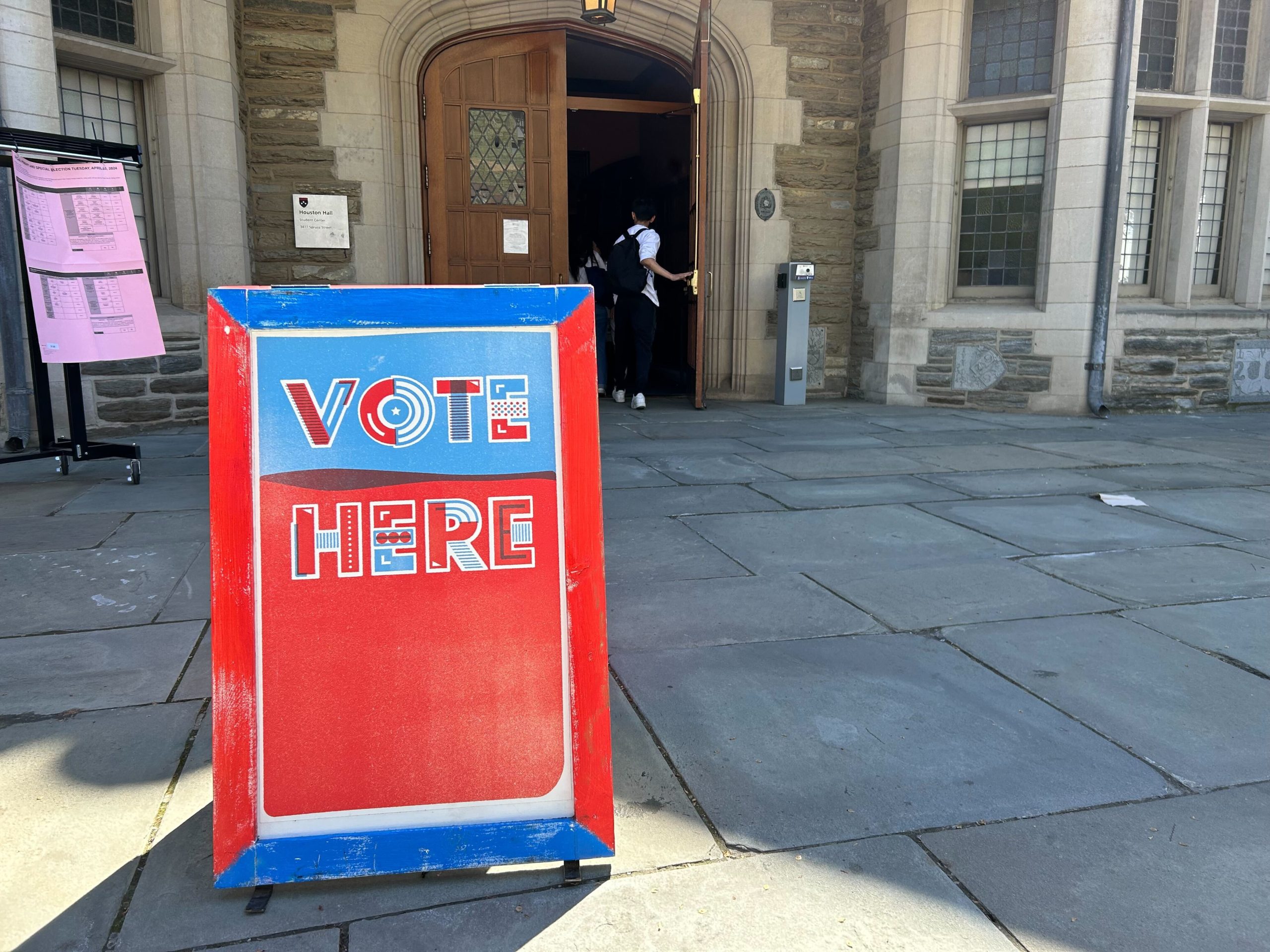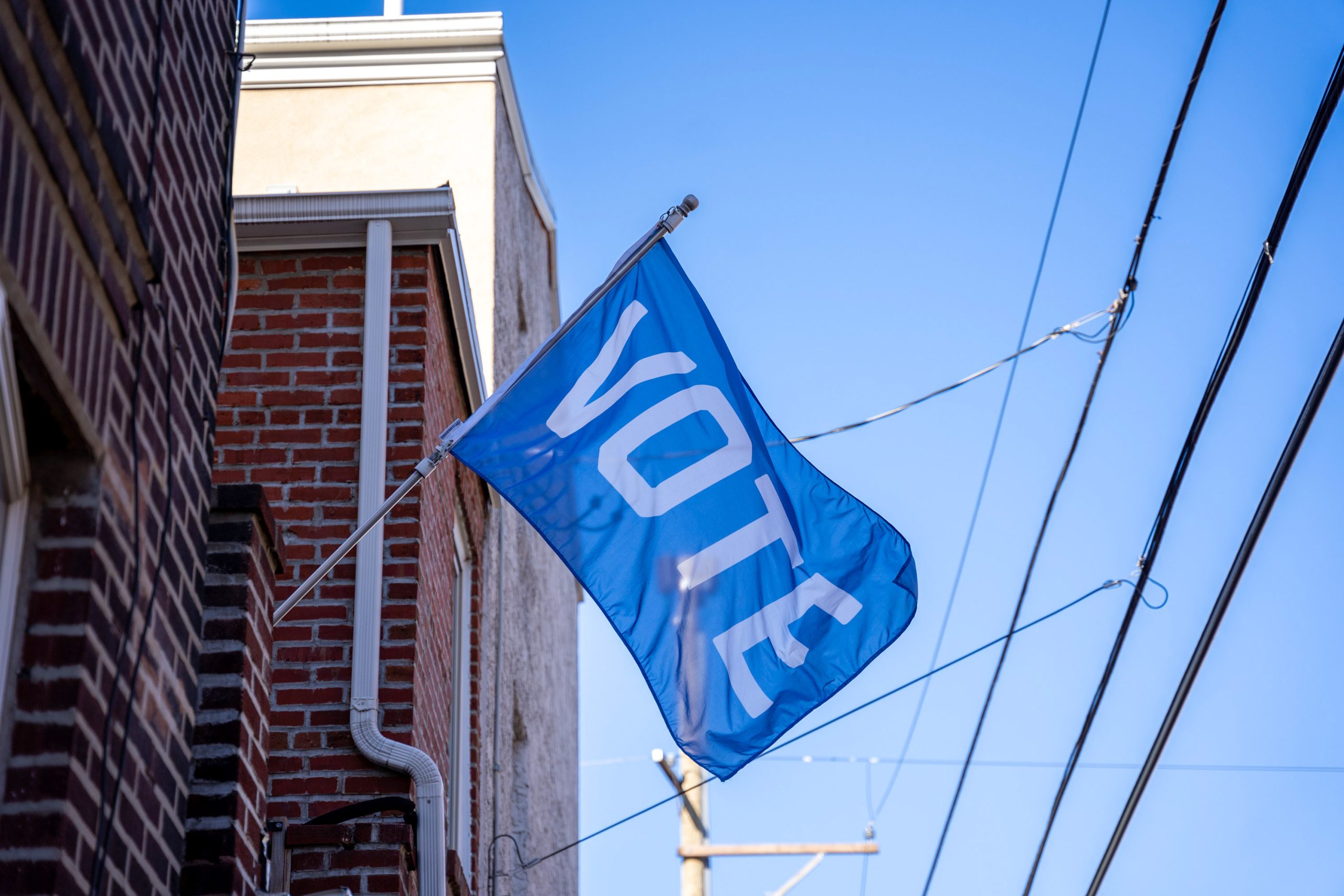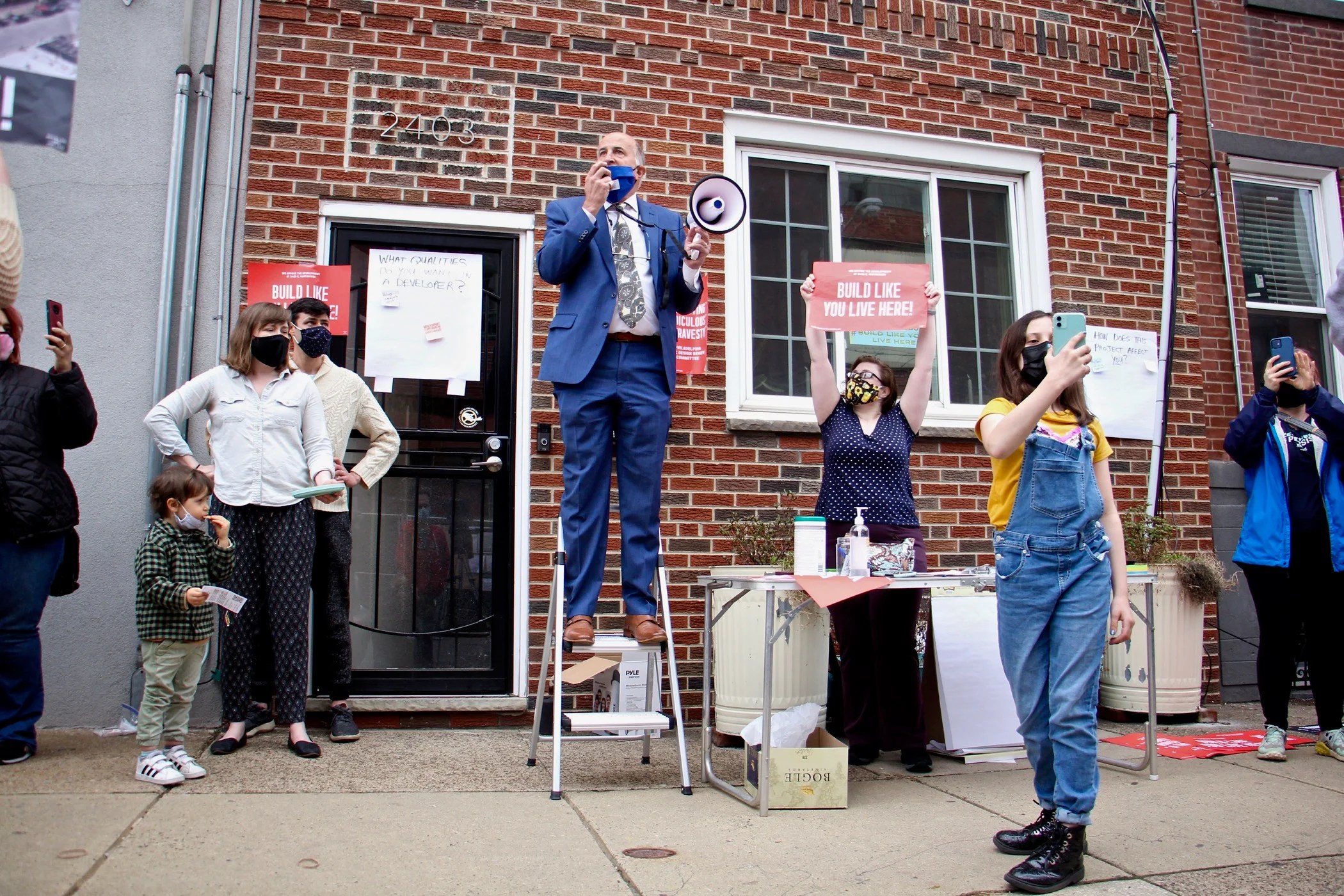A number of students made gestures of pro-Palestinian activism during the University of Pennsylvania’s commencement Monday morning, but the ceremony proceeded without disruptions like those seen at other college graduations around the country over the past few weeks.
Several of the roughly 6,000 graduates seated on Franklin Field wore black-and-white checkered keffiyehs, a symbol of Palestinian identity, and a few had messages on their mortarboards including “Free Palestine” and “Disclose, Divest, Defend,” a reference to demands that the university end investments in companies with ties to the Israeli invasion of Gaza.
One group of several women wearing traditional hijab head coverings also draped keffiyehs over their graduation gowns and at least one sported a “Free Palestine” button.
“Palestine is always in our hearts and we always definitely want to talk about liberation wherever we go,” one of them said after the ceremony ended. She did not give her name. “Even if we can’t say it verbally, the kaffiyeh still symbolizes resistance.”

The university increased security for commencement this year, requiring all attendees to go through airport-style scanners, asking students to show IDs, and banning signs, large bags, folding chairs, and other objects. Before the ceremony began, an announcement over the public address system warned that people who disrupted the proceedings would be escorted away.
Amid the graduation speeches praising students’ achievements and urging them on to future success, speakers made a few oblique references to the controversies related to Palestine and Israel that have rocked the university’s West Philadelphia campus in recent months.
In December, president Liz Magill resigned under pressure after she testified before Congress and was criticized for her answers to questions about Penn’s response to antisemitism.

A tent encampment occupied the university’s College Green for two weeks, until police broke it up on May 10 and made 33 arrests. Another 19 protesters, 7 of them students, were arrested last week when they tried to occupy a campus building. Several students have been placed on mandatory leave, including three seniors who were barred from a college-level graduation ceremony Saturday, the university said.
Protesters have demanded the school divest from companies that profit from Israel’s invasion of Gaza, disclose its financial holdings, and withdraw disciplinary actions against pro-Palestinian activists.
“It’s been a hard year for the world, and for Penn,” said Magill’s successor, interim president J. Larry Jameson, at the start of his address Monday. “But there’s also plenty of joy. We’re feeling it today, thanks to our family and friends.”

At the close of the ceremony, chaplain Charles Howard said several people had asked him recently if Penn was going to cancel commencement. Columbia University canceled its main ceremony after ongoing protests there and the arrests of dozens of protesters occupying a campus building.
“‘These seniors,’ they said, ‘did not have a high school graduation, and I am afraid they will miss their college ceremonies as well,’” Howard said. “There’s a lot of fear in the world, right now, not unjustifiably so. War is frightening and heartbreaking… We’re not that far beyond the pandemic. That was scary.”
However, the event was for the most part a typical commencement, the 268th at the Ivy League school, with rounds of cheering and applause at the mention of each school or academic department and the different degrees being awarded. Thousands of family members and friends filled the stadium stands.

Siddhartha Mukherjee, a Pulitzer prize-winning author, physician, and Columbia University professor, gave a speech on the life lessons he has learned from people with terminal cancers. Jameson awarded honorary degrees to Mukherjee, “Sound of Philadelphia” music producers Kenneth Gamble and Leon Huff, Vietnam Veterans Memorial designer Maya Lin, and scientists Ingrid Daubechies of Duke and Karl Deissroth of Stanford.
Just having a commencement at all was “awesome,” neuroscience graduate Aaron Anandarajah said.
He didn’t have a high school graduation ceremony because of the pandemic, and had to take virtual classes in his bedroom at home in Rochester, NY when he started at Penn. He said he did not see any signs of protest during commencement.
“I’m just happy everyone’s safe, in the first place. Just the fact that we can have it, ensuring everyone’s safety, was really awesome,” he said.

Students and other protesters have disrupted commencement ceremonies across the country in recent weeks. About 30 students chanted “free Palestine” and walked out during comedian Jerry Seinfield’s speech at Duke University earlier this month, and a small group of demonstrators waved flags and chanted during commencement at the University of California, Berkeley.
In Philadelphia, the focus of student protests appears to have shifted to Drexel University’s campus, a few blocks from Penn. Activists set up a new tent encampment there Saturday, following a protest march from City Hall marking the Nakba, the mass displacement of 700,000 Palestinians before and during the 1948 Arab-Israeli War
The protests continue as Israel advances military operations in Gaza. The war began when Hamas attacked Israel on Oct. 7, 2023, killing more than 1,100 Israelis and taking 240 people hostage. Since then, Israeli airstrikes and ground offensives have killed more than 35,000 Palestinians, more than 40% of them children, according to Palestinian health authorities.















